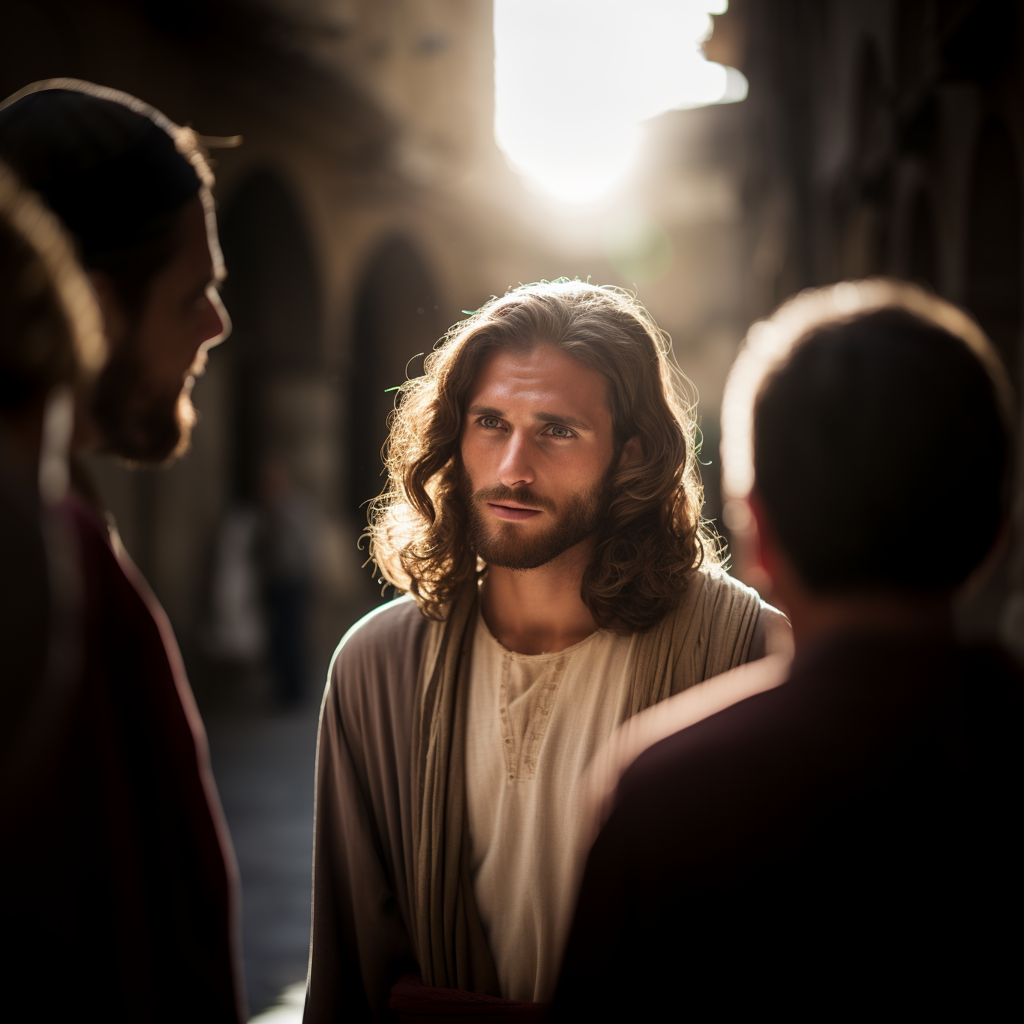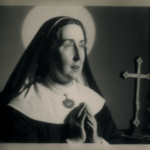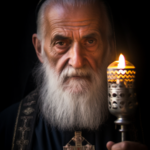
St. James the Lesser
St. James the Lesser
When they lived:
St. James the Lesser, also known as James the Just, is believed to have lived during the first century AD. His exact birth and death dates are not definitively known, but he is thought to have been born around 1 AD and died around 62 AD.
Where they lived:
St. James the Lesser lived in Jerusalem, a city of immense historical and religious significance, nestled in the heart of the Holy Land. As a central hub of trade, culture, and spirituality, Jerusalem provided the backdrop for many key events in his life.
Notable world events during the time of their life:
- Roman-Jewish War (66-73 AD): St. James lived during a tumultuous period marked by conflicts between the Jewish population and Roman authorities. The Roman-Jewish War, which started a few years after his death, resulted in the destruction of the Second Temple in 70 AD and had a profound impact on the Jewish diaspora.
- Great Fire of Rome (64 AD): A devastating fire swept through Rome, destroying a significant portion of the city. The blame for the fire was shifted onto the Christian community, leading to the persecution of Christians and further shaping the early Christian narrative.
- Nero’s Persecution (64-68 AD): St. James witnessed the brutal persecution of Christians under the Roman Emperor Nero. This period of hostility towards Christians contributed to the strengthening of their faith and the spread of the Christian message.
- Development of Early Christianity: St. James the Lesser played a vital role in the early Christian Church, participating in the Jerusalem Council around 50 AD. This council addressed the integration of non-Jewish believers into the Christian community, emphasizing the inclusivity and universality of the faith.
- Hellenistic Influence: During St. James’ lifetime, the influence of Greek culture and philosophy was prominent in the Mediterranean world. This cultural backdrop likely influenced the ways in which early Christians articulated and defended their faith.
Their patronage:
St. James the Lesser is often recognized as the patron saint of various causes and professions. His patronage includes:
- Laborers and Workers: St. James is a symbol of dedication and hard work, reflecting his role as a carpenter and his commitment to spreading the teachings of Christ.
- Pharmacists: He is also considered a patron of pharmacists due to his symbol being a staff entwined with serpents, resembling the Rod of Asclepius, an ancient symbol associated with healing.
- Social Justice: As a figure known for his commitment to justice and equity, St. James’ life of advocating for the marginalized and vulnerable has made him a patron of social justice causes.
The Other James
Besides James, son of Zebedee and brother of John, there is another James who appears in the Gospels. James is also included in the lists of the Twelve Apostles personally chosen by Jesus Himself. This James is always specified as “the son of Alphaeus” (Matthew 10:3; Mark 3:18; Luke 5; Acts 1:13). Oftentimes, he has been identified with another James who is called “the Younger”, the son of a particular Mary (see Mark 15:40), the same “Mary the wife of Clopas”, who according to the Gospel of John stood at the foot of Jesus’ cross with the Blessed Mother (see John 19:25).
To distinguish this other James, he was given the nickname “the Lesser”. This means that he was younger than the other James, who was called “the Greater.” He also came from Nazareth, and was probably a relative of Jesus (see Matthew 13: 55; Mark 6: 3). According to Jewish custom, he was called one of Jesus’ “brothers” (see Mark 6:3 and Galatians 1:19).
His Significant Role in Jerusalem
The Acts of the Apostles emphasized the prominent role of this latter James in the Church of Jerusalem. In the so-called Council of Jerusalem, James the Lesser declared, together with the others who were present, that non-Jews could be accepted into the Church without submitting themselves first to circumcision (see Acts 15:13). Paul attributed a specific appearance of the Risen Jesus to James in 1 Corinthians 15:7. He even named James before Cephas or Peter during his visit to Jerusalem. He described him as a “pillar” of that community on par with Peter (see Galatians 2:9).
Judeo-Christians considered James the Lesser as their major reference point. The Epistle that bears the name “James” is attributed to him and is included in the canon of the New Testament. In its opening verse, he is not presented as a “brother of the Lord”. Rather, he is referred to as a “servant of God and of the Lord Jesus Christ” (James 1:1).
Apostle of Judeo-Christians and Gentile Christians
James the Lesser’s most important act was his intervention in the matter of the unpleasant relations between Christians of Jewish origin and those of Gentile origin. Together with Peter, he made a massive contribution to integrating the original Jewish dimension of Christianity with the need not to impose upon the pagans who were converted the obligation to submit to all the stipulations of the Torah. This decision resulted in complementary results: the inseparable relationship that binds Christianity to Judaism and the retention of the Christians sociological identity, which they would have lost had they been coerced to follow the precepts of the Mosaic Law.
The Jewish historian Flavius gives the oldest information about the death of James the Lesser. In his Jewish Antiquities, written in Rome around the end of the first century, he said that James the Lesser’s death was decided on an illegal initiative by Ananus the High Priest, son of the Ananias mentioned in the Gospels. In the year 62, he took advantage of the growing gap between the deposition of Festus, a Roman Procurator, and the arrival of Albinus, his successor. James was handed over for stoning and was beaten with clubs. His feast day is observed on May 3.
5 Interesting Facts About St. James the Lesser
- Along with St. Joseph, St. James the Lesser is the patron saint of the dying. He is also the patron saint of fullers, those who clean, shrink, and thicken cloth, hatters, and druggists.
- St. James the Lesser is depicted in Christian art holding a fuller’s club, the instrument used to deliver the blow that killed him.
- St. James the Lesser and St. Philip, another Apostle, have the same feast day.
- St. James the Lesser is believed to have preached in Palestine and Egypt.
- The apocryphal Proto-Gospel of James, which exalts the holiness and virginity of Mary, Mother of Jesus, is particularly associated with the name of St. James the Lesser.
Prayer to St. James the Lesser
O Glorious Saint James, you were our Lord’s cousin and, at the same time, his friend and follower. You wrote that every good and perfect gift comes to us from the Father of Light and that faith without works is useless. You preached the divinity of Jesus until your death as a martyr. Obtain for us from the Father of Light the great gift of a living faith in Jesus’ divinity, which will inspire us to unstinting labor in the service of God and our fellow human beings and enable us to reach our heavenly destiny. Amen.



